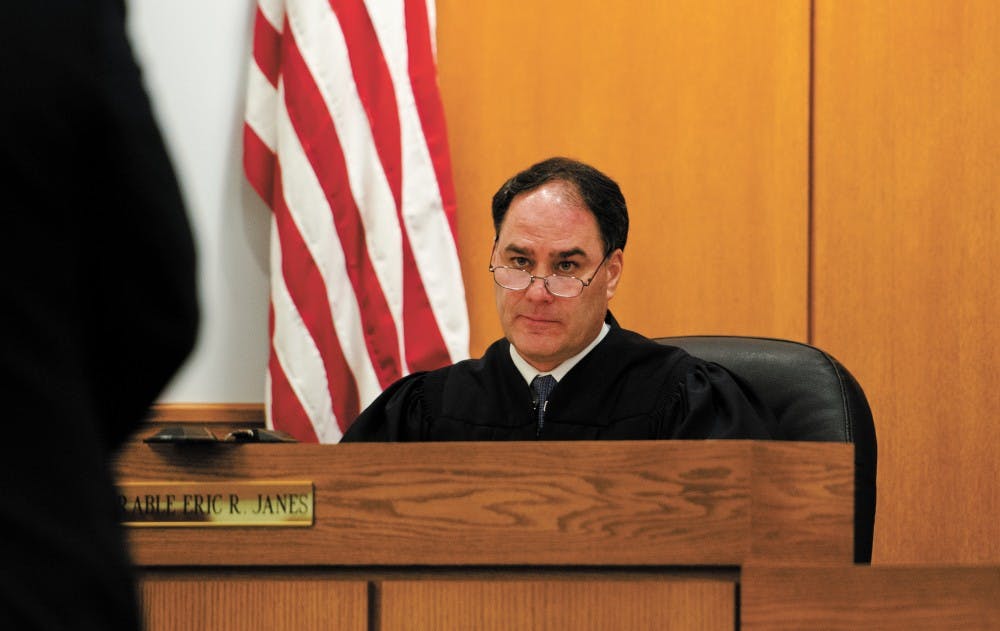Judge Janes shares first-year experiences in Mount Pleasant, career in law

More than one year after being appointed a Mount Pleasant Trial Court judge, Eric Janes said he is honored to give back to the community he grew up in.
Janes was appointed to the bench in November of 2013, by Michigan Gov. Rick Snyder, to replace retiring judge William Rush. He previoulsy worked for the local law firm, Janes,Backus, and Janes where he practiced alongside his father.
The Mount Pleasant native and former private practice attorney shared what he brings to the bench, and what inspires him to be a judge.
How are you adapting to the job? What is your overall philosophy?
JANES: I’m getting more comfortable over time. I try to be fair to everyone, give everyone their day in court. People need to understand that judges work for the people. It’s not all about the judge. The court is for the people. I try to better myself everyday, to treat people with respect and dignity. I try to make sure to have a positive impact on their lives. It’s nice when you can make a difference whether it’s family law, or sometimes you’re dealing with people who are disabled. The variety of the job is very rewarding.
Why was this a good time in your career to give back?
Originally, I never planned on being a judge. I was very content at my private practice. I had been working at a private practice with another partner for 25 years. But the timing was right, and it was an opportunity to give back to the community. I grew up in Mount Pleasant, so it’s been a real honor being able to participate in the court here. It was a good time for change. There was an opening, and it worked out for the best.
How do you deal with students in your court?
Mostly they’re very respectable. Usually, they're in a situation where they’ve made a bad choice whether it is alcohol-related, or drug-related or some kind of disorderly behavior. Typically, they’ve never been in trouble before. It’s their first contact with the court system. They’re usually pretty nervous. I just try to be fair with them, and get them through the process. Oftentimes, we can do delays or referrals so if they don’t have a criminal record, they can get through the system without one.
What’s the most common type of case you see with students?
Depending on the time of year, you have the welcome back weekends and football weekends. You get a lot of minor in possessions, attending or hosting a nuisance party or drunk and disorderly. A lot of it tends to be alcohol related. In general, it’s pretty consistent.
Who inspired you to spend your career in the court?
My father was a very successful attorney for a long time, so I followed in his footsteps. I also have two brothers that are attorneys. It was a natural path for me to take. I am the first one in the family to go into the judiciary, which is kind of an honor. I always thought my dad would be a great judge, so it's kind of a tribute to him, more so than myself, that I was able to do it.
What does it take to be a good judge?
You have to be fair, well reasoned and I think you have to have patience. The biggest thing is patience, and to allow individuals their day in court. You can’t take anything personally. You just need to have a good demeanor and help people through the process.






